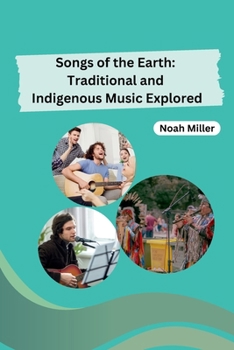Songs of the Earth: Traditional and Indigenous Music Explored
In today's interconnected world, the importance of understanding and appreciating different cultures cannot be overstated. One powerful means of achieving this understanding is through the exploration of world music. Music has always played a vital role in human societies, serving as a language that transcends boundaries and communicates emotions and stories. By delving into the rich tapestry of world music, students can gain invaluable insights into diverse cultures and foster a sense of global citizenship.
World music encompasses a vast array of musical traditions from every corner of the globe. It goes beyond familiar genres and introduces students to the unique sounds and rhythms of cultures they might never have encountered otherwise. By listening to traditional and indigenous music from different countries, students can develop a deeper appreciation for the diversity of human expression and creativity. They can experience the melodic patterns, harmonies, and instruments that distinguish each culture, allowing them to broaden their musical horizons.
Moreover, world music provides a window into the history, beliefs, and values of various societies. Through songs and lyrics, students can learn about the struggles, triumphs, rituals, and celebrations that have shaped different cultures. The stories embedded in the music offer glimpses into the collective memory of a people, illuminating their customs, folklore, and spiritual practices. By studying world music, students gain a profound understanding of the interconnectedness of humanity and the shared experiences that bind us all.
Furthermore, exploring world music can foster empathy and respect for cultural differences. By immersing themselves in the music of other cultures, students can develop a sense of empathy towards the lived experiences of people from diverse backgrounds. They can learn to appreciate and respect cultural practices that may differ from their own, fostering a more inclusive and tolerant society.





